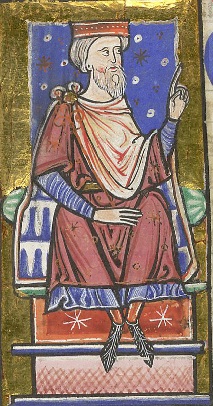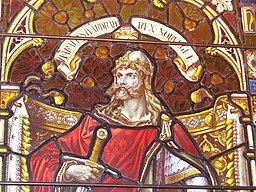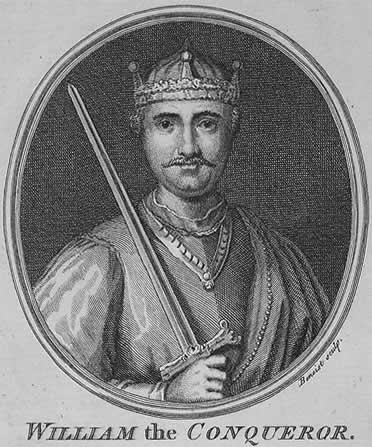How the Norman Conquest Shaped English Surnames, Language, and Heritage
The death of Edward the Confessor in January 1066 set off a dramatic succession crisis that reshaped England's political order, culture, and its system of personal and surnames. The conflict among competing heirs culminated in the Norman Conquest, an event that profoundly influenced the development of English identity and the surname traditions we recognize today.
The Succession Crisis After Edward the Confessor
When Edward the Confessor died without a direct heir, the English nobility elected Harold Godwinson, Earl of Wessex, as king. He was crowned rapidly, becoming King Harold II, a move that immediately provoked rival claims from abroad.
At the same time, Edward's long exile in Normandy had fostered strong Norman ties, and Duke William of Normandy asserted that Edward had promised him the throne. William's claim was not unusual for the period; dynastic promises and personal oaths often influenced medieval succession disputes.1
A third claimant, Harald Hardrada of Norway, argued that a prior treaty between his kinsman Magnus and the Danish-English king Harthacnut entitled him to the English crown.2 Thus, Harold II faced simultaneous threats from the north and south.
The Northern Invasion: Harald Hardrada's Campaign
Hardrada's forces, supported by Harold's estranged brother Tostig, sailed up the Humber and defeated local forces before marching toward York. Harold II moved quickly and surprised the Norwegians at Stamford Bridge on 25 September 1066. The resulting English victory ended the Norwegian threat; both Hardrada and Tostig were killed in the fighting.2
The Norman Landing and the Battle of Hastings
Just weeks later, William of Normandy landed on England's southern coast. Harold's army, exhausted from the forced march north and back again, confronted William at the Battle of Hastings on 14 October 1066. William's mix of infantry, disciplined spearmen, and cavalry gradually overwhelmed Harold's shield wall. Harold was killed in the fighting - traditionally said to have been struck in the eye by an arrow, a detail famously depicted in the Bayeux Tapestry.3 William consolidated support among the English nobility and was crowned King William I at Westminster Abbey on Christmas Day, 1066.
Resistance and Consolidation of Norman Rule
Though crowned, William faced ongoing rebellions across the country. Anglo-Saxon resistance in regions such as Kent, Exeter, and especially Northumbria required repeated military responses. William's harsh campaigns (including the devastating scorched-earth operations known as the Harrying of the North) destroyed villages and farmland to break local resistance.4Heavy taxation and firm rule earned him the lasting epithet "William the Conqueror."
How the Norman Conquest Transformed England
The Conquest was not the first foreign rule England experienced (Scandinavian kings, including Cnut, had ruled before), but the Norman impact was more profound and more lasting.
1. Administrative & Political Reforms
The Normans preserved many effective Anglo-Saxon systems, such as shire and hundred administration, coinage, and taxation, while adding their own innovations. They strengthened royal bureaucracy and expanded feudal landholding structures.5
2. Architecture and Settlement
Norman lords built the first widespread stone castles in England, established towns on continental models, and reformed major monasteries.
3. Linguistic and Surname Changes
Perhaps the most enduring change was linguistic.
- Latin became the language of government and law.
- Norman French became the language of the nobility and court.
- Old English declined in prestige, surviving mainly among commoners.
This linguistic shift profoundly influenced English surnames. Many names adopted after the Conquest reflect:
- Norma-French vocabulary (e.g. occupational surnames such as Spencer or Marshall)
- Place-based identifiers from Normandy
- Anglo-Saxon names adapted to French spelling conventions
FAQs
Did the Norman Conquest affect all English surnames?
Not all names changed immediately, but over time, many English surnames absorbed Norman spellings, French terms, or feudal titles. Even families of purely Anglo-Saxon origin sometimes adopted French-influenced forms as Norman culture became dominant.
Is it possible for the same surname to have both Anglo-Saxon and Norman origins?
Yes. Some surnames emerged independently in multiple regions. A name might be borne by both Anglo-Saxon families before 1066 and Norman families after the Conquest.
See Also
References
- Barlow, Frank. Edward the Confessor. University of California Press, 1970.
- Gravett, Christopher. The Battle of Stamford Bridge. Osprey Publishing, 1997.???????
- Bridgeford, Andrew. 1066: The Hidden History in the Bayeux Tapestry. Walker Books, 2005.
- Williams, Ann. The English and the Norman Conquest. Boydell Press, 1995.
- Huscroft, Richard. The Norman Conquest: A New Introduction. Pearson Longman, 2009.
- Scott, Walter. Ivanhoe. Easton Press, 1977.
- ^ "File:Edward the Confessor.png." Wikimedia Commons, the free media repository. 27 Jan 2019, 19:54 UTC. https://commons.wikimedia.org/w/index.php?title=File:Edward_the_Confessor.png&oldid=336702234
- ^ "File:Harald Hardrada window in Kirkwall Cathedral geograph 2068881.jpg." Wikimedia Commons, the free media repository. 17 Feb 2020, 10:06 UTC. https://commons.wikimedia.org/w/index.php?title=File:Harald_Hardrada_window_in_Kirkwall_Cathedral_geograph_2068881.jpg&oldid=395412719
- ^ "File:William the conqueror.jpg." Wikimedia Commons, the free media repository. 28 Mar 2017, 19:56 UTC. https://commons.wikimedia.org/w/index.php?title=File:William_the_conqueror.jpg&oldid=238890701
- ^ Scott, Sir Walter, Ivanhoe Norwalk, Conn.: Easton Press, 1977, pp 6, 7
- ^ Swyrich, Archive materials


